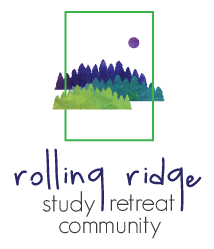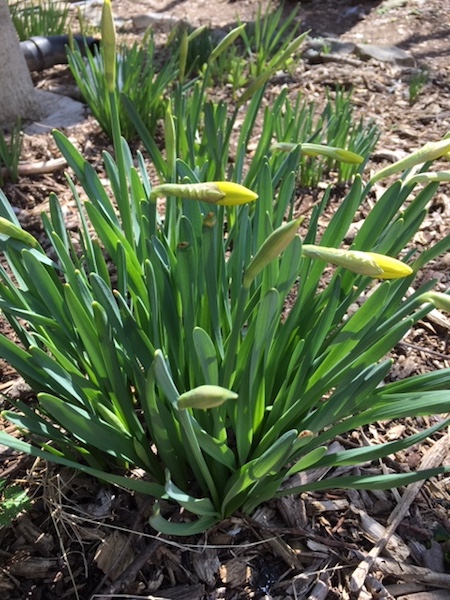The old willow stump by the creek has sprouted pale green fronds. The crocuses are pushing up through brown leaves. Water in the creeks gurgles irrepressibly over rocks, bird song wafts delicate music in the trees, and frogs make frothy love in the ponds. Spring has arrived, despite the world’s troubles. This means that for the next few precious weeks, or maybe only days, it will be possible to walk comfortably in the wild woods.
The air will warm to a delightful 70 degrees; the humidity will be barely a kiss of sweet, light air. Gnats, chiggers, mosquitoes have yet to make an appearance and the breeze drifts free of bugs. In early spring, ticks are far less prevalent, and wearing long pants and socks is so much easier. The grasses where ticks hide are sparse and the muddy ground discourages any temptation to lie down on the earth. The snakes and bears have not quite woken, the poison ivy not yet leafed. One can drift placidly and at ease, admiring the way the slanted, golden spring sunlight dances through the barely budding branches.
I sometimes conjecture that when people picture themselves on retreat, this is the scene they imagine. But these blissful days are ephemeral, and most people coming on retreat at Rolling Ridge find themselves in wildly different circumstances. So as we prepare to host events from early summer through late autumn and on into the damp winter, I find myself pondering the benefits of visiting a less comfortable world.
Robin Wall Kimmerer has a chapter in Braiding Sweetgrass called “Witness to the Rain” in which she describes the acute awareness and sense of profound kinship that arises within her when she chooses to remain in the dripping woods:
After hours in the penetrating rain, I am suddenly damp and chilled and the path back to the cabin is a temptation. I could so easily retreat to tea and dry clothes, but I cannot pull myself away. However alluring the thought of warmth, there is no substitute for standing in the rain to waken every sense—senses that are muted within four walls, where my attention would be on me instead of all that is more than me. Inside looking out, I could not bear the loneliness of being dry in a wet world.
This heightened awareness is what Geneen Haugen experiences in her time living in a tipi amid extreme cold. She reflects on what she calls “an incredible blessing” in her piece “Deep Winter”, written for the Garrison Institute:
Living alone with only a thin membrane between myself and winter, in one of the coldest places in the American West, was a privilege from which I have never recovered. The privilege of living with all the senses wide-open and even extended, as perhaps our ancestors had lived. Listening with the whole body. Seeing with the ears….Even at 35 degrees below zero, living in a tipi never felt like a hardship, but rather an incredible blessing, a way of living more in accord with the wilder one who still inhabited my body…Living so close to the elements opened up a farther horizon of possibility…
Rolling Ridge may not be located in the majestic American West, but invitations to be wholly present and allow sensation to open the heart are here and everywhere. We have been given bodies that apprehend our arrival in a wild and woven world: a world that is often wet, bitter cold or sticky hot, a world where tiny critters tickle and tease, or wind cuts sharply across the field, creating an exuberant tapestry of sensation.
When we plunge sensationally and whole-heartedly into the world beyond four walls we release the forest from the fetters of scenery, from being a bothersome backdrop to self-absorption. The elements, creatures, plants, even the ancient rocks, are freed to be themselves, participants and actors in the story of the moment. In that moment our dormant imagination awakens and claims her radiance and license to dream and wander. Anything could happen then.
We live in troubled and troubling times, when despair is everywhere and the human race seems profoundly lost. It is no wonder that people are flocking to natural lands for refuge from the mayhem, for space to grieve and recharge. Yet respite is not the only, nor even the chief benefit of these lands on the edge, places filled with all manner of elemental and earthy stimuli, most of them beckoning us beyond safety and ease. These places and their wild inhabitants call us to step away from our lonely, civilized comforts and into our place in the family of things, to be woven bodily, heart and soul, into the community of the living Earth, and beyond.
Which is not to say I don’t relish these precious sunny spring days free of the unpleasant caresses of bugs or the kiss of icy rain. Yet I suspect that the deep renewal and repair of psyche and soul so longed for personally and collectively in these times may be found more in embracing those less idyllic, more marginal conditions and moments that open the heart and call us home.
Geneen ends her piece about living in such a place and moment with these words, words that may encourage all who contemplate a bracing plunge into a retreat experience at Rolling Ridge or another “borderland” place, or simply a walk in the wild, edgy outdoors:
Even amidst such devastating loss of cultures, languages, wild lands, and species—magic and mystery still occupy the borderlands of civilization, waiting patiently for us to remember that we don’t know everything about the nature of so-called reality, or even about our imaginative capacity to create other possibilities, other ways of being human.

